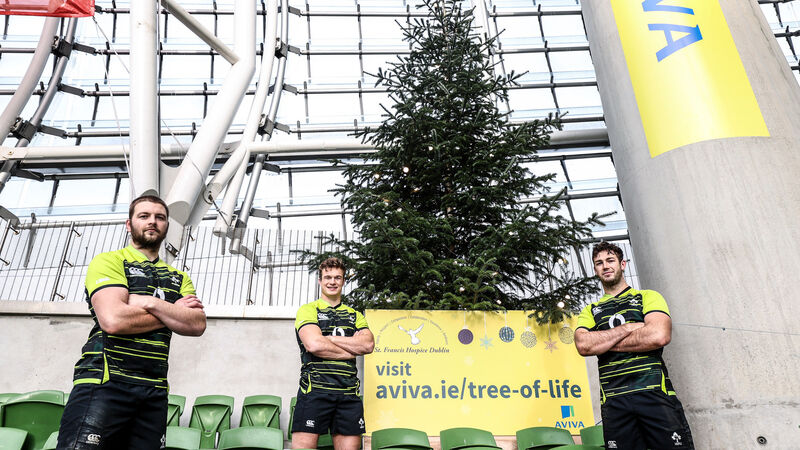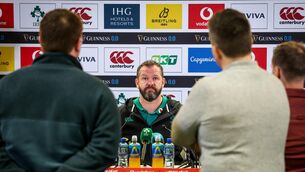Donal Lenihan: This has now developed into a must-win game for Ireland

Iain Henderson, Josh van der Flier and Caelan Doris with the 20ft Christmas tree in Aviva Stadium launched in honour of St Francis Hospice and its Charity Christmas appeal ahead of Ireland’s Guinness Series finale against Scotland. This year, Aviva Ireland’s national charity partner, St Francis Hospice, is calling on the public to sponsor a light for €6 on its ‘Tree of Life’, in memory of a loved one or for somebody experiencing difficulty in their lives. Visit aviva.ie/tree-of-life for more information.










